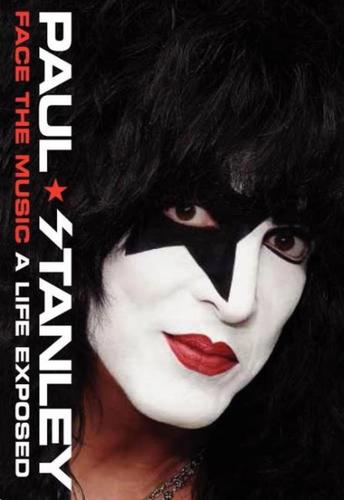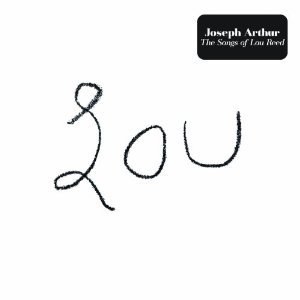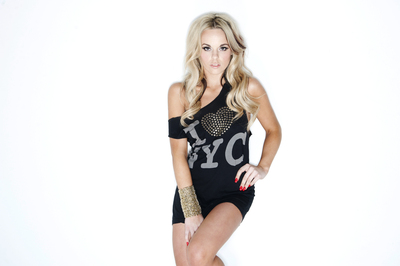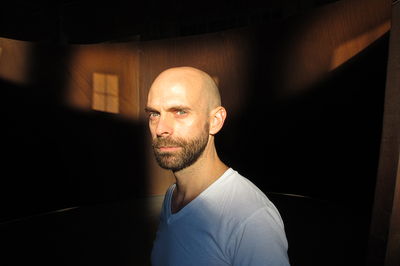A Conversation with Paul Stanley
Mike Ragogna: Paul, how are you doing?
Paul Stanley: Good, give me one minute to sneeze. [sneezes] You got the brunt of that one. Wipe yourself off and then we'll get to work.
MR: [laughs] Dude, your book released at number two best selling on The New York TImes list. How does something like that feel?
PS: I'm not easily found speechless, but as much as I'd be able to articulate it, it's humbling and incredibly rewarding. I just found out that right now it's an international best seller as well. Clearly I wrote the book with a purpose and I wrote the book with a vision far beyond the idea of a KISS book. This is a book about my life story, being born deaf on one side without an ear, the scrutiny I went through, and coming from a family that--not intentionally--was minimally supportive or less and the quest for fame as a means of going in the hole and the sense of self-doubt and what came of that. I was lucky enough to become successful and at that point I realized although success was an incredible gift it didn't change anything in my life. Your secrets remain your secrets, other people may not know them, but then at that point you'll either be a victim in life and complain or you'll put a shotgun in your mouth or a needle in your arm or you'll roll up your sleeves and start excavating, you'll start demolition, tear things down and build a life that can be amazing. I think that's universal, and that's what I'm getting from people, it's not a book purely for musicians and it's not a book purely for Kiss fans, it's a book that resonates with a lot of people.
MR: Yeah, and what's nice is that you really humanized Paul Stanley. Fans may know so much about you, but they still don't know how much certain things affected your life, like that car accident. You talked about getting to realize the important things; that one was a big one for you, wasn't it?
PS: There have been so many moments in my life that you could call revelations and epiphanies, but that's because I'm fairly aware of the goings-on in my life and how they affect me, whether it's almost drowning in Hawaii and realizing that I'm struggling to stay above the water but life is going on on the beach and will continue whether I die or not, facing my own mortality and facing our own issues is something that everybody does at some point. I think one of the services, if you will, that I've done for people is to not only humanize me, but to let them know that they're not alone. People read the book and say, "That's me in the book." One thing we all struggle with when we have issues that we keep quiet is the idea that we're all alone. Once we see that we're not, and even better yet the people that we look up to are no different than we are, it's a huge win-win. It's a terrific, terrific gift to me to have that acknowledgement and it seems to be a gift to other people.
MR: With your second wife and your children, you've really been exploring and getting more out of life. That's been an important thing to you beyond the theatrics of KISS, right?
PS: Well I have to say, without naming names, that I know many performers and people in other bands who don't ever want to go home, who don't ever want to leave the stage because they have no lfe and because who they are is based purely upon how they are perceived by the public. I've never wanted that. Once I saw that that wasn't an answer, I decided to find out what was. There's a lot of people out there who just don't want to do that work, and they become slaves to their professions instead of basking in them.
MR: And you've seen it on both sides. You now embrace the more human side of Paul Stanley, but you also talk a lot in the book about who you are in KISS. KISS served a purpose for you, didn't it, in your life? It was cathartic for you, wasn't it?
PS: Well things came about interestingly. I've always been very driven to succeed. Success is something that does not come without committment and sacrifice. Those were all made in the name of acheiving what I wanted. Kiss has been the vehicle that allowed me to go the extra mile. It's a huge, huge milestone to reach the success level that I have had with the band, but it availed me the opportunity to go much farther. By acheiving what I did with the band it allowed me to see that it wasn't the ultimate answer to being happy. Contentment and ultimate happiness has to come from within, and it will be mirrored in what goes on around you. I'm a big believer that the best way to charge your condition is to look at your relationships. If the relationships around you are dysfunctional, it's a direct reflection on you. It's interesting how people can sometimes say, "I'm unlucky in relationships," but until they realize that relationships are based on their choosing, then once again they're victims instead of owning up to their responsibility.
MR: The name of the book is Face The Music: A Life Exposed. From your perspective, what was the biggest thing that you exposed?
PS: Hmm. I think it's a general term, because the book is just full of truth, raw truth. I was not uncomfortable telling any of it because it all led to a happy life. I could never have told this story if I was still in the midst of that quagmire or whatever you want to call it. It really is my story because I wanted my children to be able to read it and understand who their dad is and what I went through and perhaps it would serve them and other people with some life lessons.
MR: And I'm imagining it also exposed that life to yourself as you were going through the process.
PS: Well it's really beautiful when you let go of your secrets, but to let go of your secrets you have to feel secure enough within yourself. You can't get let go of secrets if you're worried about the impact or how they can be used against you. I'm totally comfortable in my life. It's the secrets that can harm you the most because they don't allow you to get on with your life.
MR: Paul, what is it that KISS supplied to American culture, something that totally resonated?
PS: What continues to resonate 40 years later is a band that stands its ground, that bows to no one, that sings about self-empowerment and about following your own path, and celebrating life. It's interesting how when we first came on the scene it was seen as trite and trivial compared to what other people were singing about. The real fact of the matter is that we're here forty years later because what we sing about is timeless. You can't save the planet, you can't fix the ozone layer, you can't take on global warming unless you believe in yourself and have self empowerment. It all starts with you. The simplicity made the truth seem trivial, but it never has been. On top of that, the makeup and the iconic imagery resonates with children who don't even understand music yet. I think the experience that people over the years have had at our shows has made it into almost a tribal event. You bring your children to experience what you experienced and to share it with them. It's unlike other bands. Other bands have audiences that don't want their younger brother there, don't want their father there, don't want their neighbor there, they want to own something on their own. We are the largest cult in the world and people come with their chilrden, with their grandchilrden, with their neighbors, this is the secret society that everybody is welcome to.
MR: There's a huge connection between KISS and its audience. What do you feel when you look at them? What do you think they're feeling?
PS: I think they're feeling an incredible exhiliration, but that's what I'm feeling. We're both feeling an incredible sense of gratitude. I couldn't be more grateful for our following and their dedication to us and the fact that when we do something they don't like they let us know by not showing up and not buying it. It's not blind adulation. I think it's a relationship of reciprocity, I think it's a relationship that's healthy in that, let's face it, we love each other.
MR: What advice do you have for new artists?
PS: Particularly at this point, I would say if you're pursuing music because of the pot of gold at the end of the rainbow, find another occupation. The pot of gold has been made significantly smaller by music conglomerates that now will own a piece of everything you do from merchandise to touring, and the chances of you succeeding are infinitesimally smaller at this point because there's no nurturing of artists, which was something that happened in the times of Jimi Hendrix, The Beatles, Janis Joplin, you were signed to a label that first of all loved what you were doing musically and believed in you enough to wait through a few albums to see what happened. Now you're lucky to get a single out without getting thrown off the company plank. So if you are not compelled to do it, don't do it. If you have to ask, "Should I do it?" then the answer is no, because you don't pursue music because you want to, you pursue music because you have to.
MR: It seems to me like you're the type of guy who would've been just as happy driving that taxi all this time as you are being part of the biggest group of all time, KISS. Is that true?
PS: It's hard for me to say because I've been a member of this band for so long. I will say that I wouldn't have been happy doing either if I didn't find happiness within and happiness within my private life. The lesson here is that the external is never the answer.
MR: So when should we expect Face The Music: A Life Re-exposed?
PS: I'm in this incredible position to have this best seller internationally at this point and to have the luxury of having my publishing company saying, "What do you want to do next?" which is something that I never had to consider before. I've been bitten by the bug and I have every intention to keep writing.
MR: So keep our eyes peeled.
PS: Yeah. Obviously there's always more life to write about, whether it's mine or just my view of life in general. In terms of Face The Music: A Life Exposed it had to end at some point because otherwise you'd be stopping the presses weekly to add something new to the book. But in the long run, what I'm doing is a point of view, and that can transcend and exist outside of an autobiography.
Transcribed By Galen Hawthorne
A Conversation with Joseph Arthur
Mike Ragogna: Joseph, your latest album, Lou, covers some of Lou Reed's most popular songs. How did that idea come up?
Joseph Arthur: Bill Bentley at Vanguard Records called me out of the blue after reading a remembrance/eulogy I wrote about Lou. He asked me if I would be interested in doing a tribute, which I naturally thought meant being part of a multi-artist compilation, but in fact, he thought it would be a better idea if I just recorded my favorite Lou songs and made something more personal. It's funny because he later changed his mind, but changed it back again after he heard it. So there was a small period of time when I had this record made from someone else's concept who had, in a nice way, abandoned it. It was an interesting place to be in, however I remained grateful because it was a perfect way for me to celebrate Lou and mourn him all at once. And I should say Bill immediately came back to his concept after hearing the record and now there is no one more enthusiastic about it. Bill has become a friend thru all this, so in a way I feel like Lou introduced us from the other side.
MR: What do think Lou Reed meant to our popular culture beyond the music?
JA: In a word, freedom. There has never been anyone more individual than Lou and never anyone who followed his idiosyncratic vision as thoroughly. I mean, even right to the end with his project with Metallica. No matter what you think about that project, you can't deny its originality and he took the hits for choices like that throughout his entire career, from the first to the last. I can't think of an artist as challenging as Lou in that way. He used his genius to provoke new ways of thinking about a tired form-- songwriting-- and continued to breathe new life into it. That inspired artists far and wide in many mediums outside of music. I think he was a major inspiration for anyone with a different vision to be brave enough to follow it.
MR: Recently you performed with members of R.E.M. on Letterman. What was the experience like?
JA: TV is always nerve-wracking and this one was even more so because of the weight of paying tribute to Lou and because moments before we went on Letterman announced his retirement. But I can't think of a more fitting song to match the occasion and I was lucky that Mike and Peter played it with me. That's some pretty intense moral support!
MR: For you, what the major differences between how you approach a song in the studio and when you perform it live?
JA: For me, there are more similarities than differences but the big difference is the energy of the audience and the uplifting effect that has on the whole operation. Before a performance, even after doing this for going on 20 years, it seems like a kind of impossible thing to do, however, the audience elevates you and in that way it's truly collaborative. And of course, there is the threat that they may rip you down but that, too, is collaborative. A recording is more personal, I suppose. With the Lou album, I was free to make any call I wanted without any pressure of succeeding or failing because I was alone and thinking the whole time that I may not even play it for anyone.
MR: Which Lou Reed song do you feel that you most identify with and why?
JA: That's tough with a catalog as rich as his, but I once told him I thought "Coney Island Baby" was the best song ever written. And I think it has something to do with vulnerability of the opening lines, the fact that it has its own structure, and it crescendoes into something universal such as the glory of love and then ends with a personal sign-off whereby he seemingly dedicates the song to himself and Rachel and all the kids at P.S 192, saying he'd "give up everything for you." At that point he could be talking directly to us, his audience, because that's exactly what he did. Incredible song.
MR: Previous to Lou, you've recorded quite a few albums. What is your creative process when you write then record your own material?
JA: Well, I've put out roughly ten albums and ten EPs give or take over the last 18 years, so it has gone all over the place--from quick in-studio jams all the way to going over every last detail with a fine-tooth comb and working on a single album for three or four years. There is no one way and both can get great results and both have pitfalls. But I think the worst pitfall is doing the same thing over and over again and I certainly have avoided that.
MR: Were you tempted to significantly change any of Lou Reed's songs in order to accommodate the needs of your own writing and performing style?
JA: No, not really. I had to make them work for the setting I chose, which was stripped down and bare. His songs and lyrics are so good however that this was less challenging than I would have thought. I felt free to make small tweaks, bending a melody here or there but mostly I tried to stay true to the way Lou wrote it, letting the production style and the way I sing take care of the originality in it.
MR: Are there any other artists whose catalog you'd like to explore?
JA: That's a good question and one I've thought about. Dylan comes to mind but I think this is the kind of thing you do once in your life. I can't think of being as inspired to do something like this with anyone other than Lou. And it's not as though I've dried up. I put two of my own albums on the back burner for now, so after this I will get back to that.
MR: What advice do you have for new artists?
JA: People talk about how difficult it is nowadays and they aren't lying, but to be a creative being and follow a vision that is individual to you and only you is the greatest kind of reward there is. You will take a beating if and when you follow it but it's worth it and ultimately, people come around and recognize and appreciate those who have stayed true to themselves. Lou was and remains a hero in this regard. And one I hope to live up to.
A Conversation with Katy Tiz
Mike Ragogna: Katy, "The Big Bang" is banging the heck out of radio, iTunes, Shazam... Have you heard it broadcast yet?
Katy Tiz: Yes I have! I go crazy, everyone, so if you see a crazy blonde Brit dancing and screaming in her car....don't call the police
MR: What's the story behind "The Big Bang"?
KT: The song was released a few years ago by the writers and producers of the song, Rock Mafia. They wanted an artist to take it all the way and the shoe fit! I totally fell in love with the song as soon a I heard it!
MR: How's working on the new album going?
KT: It's great!!! Every minute I have off I go to the studio!! I have so much to say and I am so excited to put together a piece of me for everyone to hear
MR: What's it like working with Rock Mafia?
KT: They are bloody brilliant! It really is like a home away from home for me
MR: Creatively, what does making music over any other type of art satisfy you and what's your creative process like?
KT: I write a lot in the middle of the night. I have about 100 crazy voice notes on my phone where I wake up with a lyric or melody that I need to get down before I pass out again. Music is kinda like a therapy for me, I really get stuff off my chest when I write!
MR: Are your friends treating you any differently now that you have a hit?
KT: Haha...no way! I'll always be little Tiz and trust me, the English banter is rolling between us on text as we speak!!!
MR: How's your live show?
KT: It's great! I've grown up performing live so that's my favorite part. Especially to a crowd that are really up for it!
MR: What advice do you have for new artists?
KT: Be yourself. Never give up and always be grateful for the support people give you.
MR: What would you like people to know about you beyond your musical talent?
KT: I'm 5' 2", I am blind as a bat and I eat apples and peanut butter at the same time...is that weird?
MR: [laughs] How do you picture Katy Tiz five years from now?
KT: hopefully, celebrating a long run of huge success with my amazing team. I've promised myself that if I get to a certain place in my career, I'll get a tattoo, so hopefully I'll have a few by then!! Sorry mum!!!
HANS CHEW'S "STRANGE LOVE"
According to those in the Hans Chew circle...
"For Hans Chew, 'Strange Love' is emotional reconciliation. The fourth song from his new album, Life & Love, 'Strange Love' is a song with dark overtones."
Hans explains it further.
"The song was written around two very painful events for me and my wife: one of them was the symbolic loss of two people very dear to us, and the other was the actual physical loss of my wife's best friend," Hans reveals. "At the time we were experiencing a strange juxtaposition of phenomena: on the one hand, there was a love that was supposed to be there supporting us but was somehow unavailable, and on the other hand there was a love that seemed no longer possible but mystifyingly it continued to grow in strength and protection. For me at that moment, there was a compelling need to understand and communicate how real love feels, not love as an expression or statement, but active, quantifiable, supportive, powerful love that permeates your entire experience of life on some deeper level. There are times that you can feel the powerful effect of love from someone who has never even expressed it verbally towards you, and there are other times that someone can tell you that they love you yet you wonder why you're left feeling so cold and alone."





